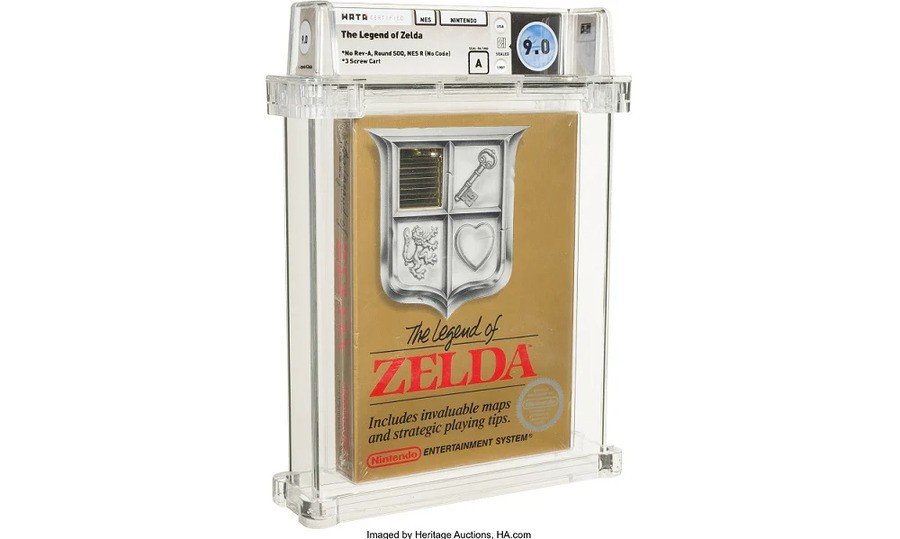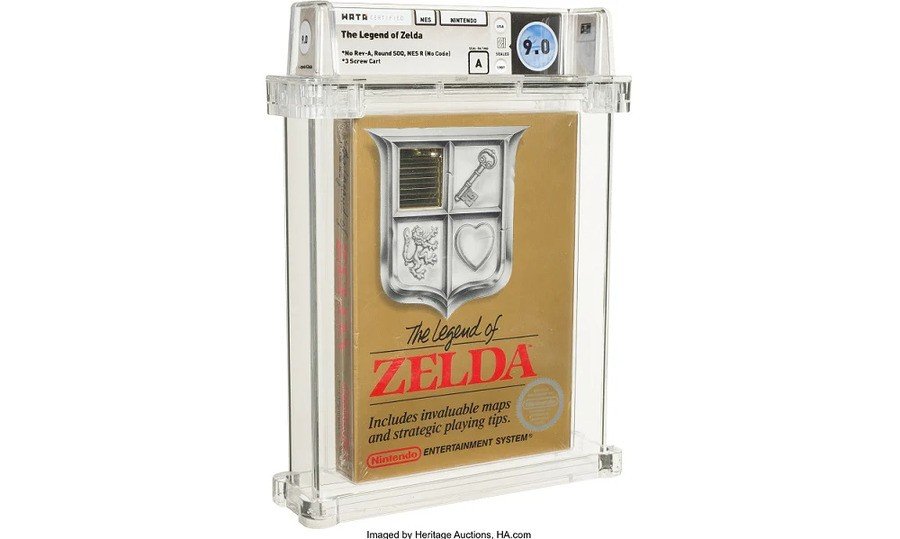
In July, just days after a high-grade version of The Legend of Zelda broke auction sale records, a sealed copy of Super Mario 64 sold for $1.56 million – making it the highest-priced video game sale ever. So what's going on here?
According to lawyer, author and Proof journalist Seth Abramson, powerbrokers in the game's auction market are "systematically trying to hide data" in a get-rich scheme. Abramson has now released some "hard data" in an attempt to spread the word and combat this artificial market.
In view of the just-released documentary on Jeff Meyer, Jim Halperin, Wata Games, Heritage Auctions, and Big Data in the video game market, I'm releasing all my NES market research for free. What finally pushed me to this was the realization that powerbrokers in the nation's hottest, most out-of-control market are systematically trying to hide data regarding the market.
This—below—is what the grading houses and auction houses didn't want us to see: the games that are making them rich are THE MOST WIDELY AVAILABLE GAMES (and yes, even in high grades) in the world.
When I asked sellers getting rich off this artificial market how they react to the hard data above, they said that even common NES games are scarce relative to scarcity in other markets. But this is a misdirection—as this is only the *first wave* of the WATA boom.
They know that. Because the sealed-game boom was significantly COVID-aided—and because WATA has a 6-to-9-month backlog—we're only seeing the early months of these supposedly valuable games flooding the market. By 2024, there'll be *thousands* of high-grade sealed Super Mario Bros. 3 out there.
The data Wata accidentally self-leaked said it had graded 750+ SMB3s since its founding in April '18. But Proof Games only found *65* that had come to market sealed since January '19. While some of that disparity is because the 750 included non-sealed "CIBs," it also suggests that major investors are holding *many* copies of SMB3 and slowly releasing them into the market to hide how ubiquitous the game is sealed/graded. While that may be legal, it underlines that by 2024 the market will be *saturated* with games people are paying *$30,000* for now.
But here's the catch: the people paying $30,000 aren't earnest collectors, they're big-money speculators. They'll then flip these pretend-rare SMB3s for $40,000, then $60,000, then $100,000. Until the market busts, and there are no more re-sellers for the big sellers to sell to.
The other thing the rich sellers I spoke to said to justify themselves is that the games underlined in red above have "historical significance." That may be true in the case of SMB3 or Zelda, but *not* for the *dozens* of easy-to-find games these guys are now selling for $5,000+.
To the extent these games are ever sold to in-over-their-heads hobbyists, what the sellers mean by "historical significance" is merely "nostalgic inertia certain to draw in suckers. To the extent they're largely being sold to other sellers anyway, it's cash—not history—talking.
You can get a more thorough rundown of the whole thing over on Proof. YouTube Channel Karl Jobst has also published a lengthy video breaking down the supposed "fraud and deception" in the retro video game market. You can check it out below:
What do you make of all of this yourself? Are you at all surprised by any of this? Tell us down below.
[source sethabramson.substack.com, via twitter.com, nintendoenthusiast.com]
